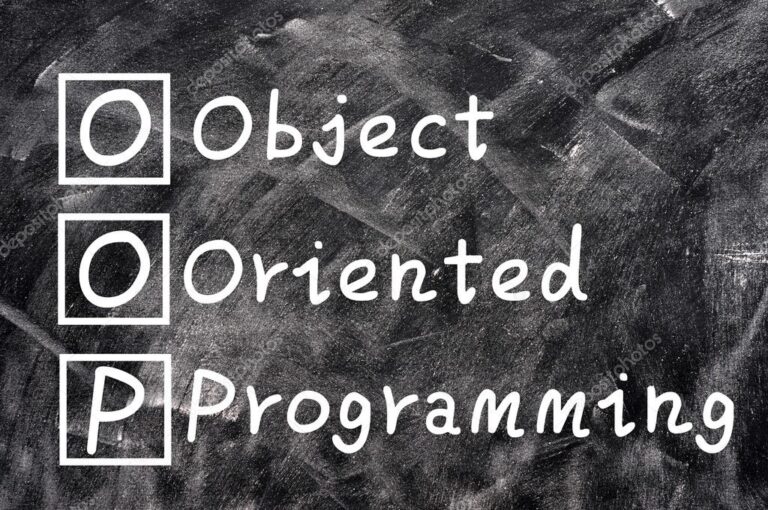Why learning how to build a website?
There are quite a few reasons why one would want to learn how to build a website, and of course, different people do it for many different reasons such as:
- Getting a job as a web developer
- Save the cost of having, a website built for you
- Start a business that creates websites for other people.
These are just three of them there are lot more and we’re sure you can come up with a few as well.
As to the hows, there are two recommended ways of building a website:
- Build it from scratch
- Use CMS (content management system)
Choosing which one is right for you, depend on what your goals are. Each method has its pros and cons. So now sit back and let us outline the two methods and then you can choose the one that suits you best.
Build a website from scratch
With this approach, you’re going to need a text editor that will let you write the lines of code that actually creates the web page. This includes the design, appearance, and functionality along with all the files that are required web page creation.
You’re getting full control of all the features, appearance and functionality of the web page. There are two things involved in doing this one is the design of the webpage and the second is building from that design. In addition, this is often handled by two separate people a web designer and the web developer. The developer writes the code from the specifications and the ideas from the mind of the designer. So buying doing it this way you have a choice of roles you can perform or you can broaden your skills by doing both. Let’s take a look at the designer first.
Become a web designer:
In order to become a good web designer, you need to learn to think out of the box and use your creativity. There are various Graphical Tools such as PhotoShop, Illustrator or InDesign and you should be conversant with at least one or more of them. So, if you want to be a web designer you may need to take some courses on these various products and if you like, you can learn more by looking at a review of 5 most popular web design courses that are available online here.
Your Dream Website Awaits!
Become a web developer:
Take an online courseThere are many courses that are available online for free. However, for many people, it’s hard to stick with a learning path or create one of their own. Instead, choose a course that contains everything you need and avoid the headaches of attempting to create your own syllabus or use someone else’s. It is much faster to just choose a good course and go for it. Remember, you get what you pay for so choose the best opportunity available. We have an online review of a few of the most popular web development courses that can be found online.Download your text editorA text editor is a computer program that allows you to write code for your web page. One of the things it can do is allow you to save your work in various formats like HTML, PHP, and Java as well as many more. We here at this site favor NotePad++. One of its main advantages is that allows you to store your code in various formats as mentioned earlier and it’s a text editor that is free. In a future article, we will explore some of the more popular text editors for you so you can make an intelligent choice for the one that’s right for you.
Pros
- Whatever you can imagine you can create, as you have no constraints as you have complete control of what appears on your web page. Whether it’s a simple graphics or smart algorithms that take pages of code to write can all be built from scratch. This is how many of the more famous websites such as Facebook, Google, YouTube as well as many others were created originally.
- What’s more, a person who has the skill can charge higher rates for their work over someone who uses a CMS/framework system, as it requires more skill than plugging in modules and letting the system do the work for you.
- You are getting a unique design that nobody has, because you made it yourself (or a designer did it for you)
Cons
- First, the learning curve is much steeper as you have to understand in depth different languages such as PHP, HTML, CSS, SQL, and JavaScript. Working with CMS is much simpler because you just have to have the basic understanding of how to use the system and it writes the code for you and can create beautiful websites as well.
- Another drawback is the time element, as it takes longer to write at the code level instead of letting a CMS system you most the work for you. When you do it from scratch, it means exactly that you have to write all the routines, subroutines, and GUIs.
- Doing it from scratch is often times more expensive than to buy a generic product and then modify it to do what you want. This is what a CMS does for you. It creates the basic shell and then you had the bells and whistles at customizing to fit your needs. This is analogous to buying a Carmen Ghia tearing off the body and putting a Formula One body on it and replacing the Volkswagen engine with a Porsche’s.
Build a website with CMS
CMS is short for “Content Management System”; it is actually a program/environment that you install on your server. Once it’s in place you can have, a webpage as well as a complete website up and running in just a few minutes. It will look pretty generic and won’t have all the bells and whistles that a scratch built web page have. However, with the WYSIWYG system, (What You See Is What You Get) and you can add content and everything is handled for you and you don’t even have to write one line of code. This also goes for design as well as with the use of objects that you can move around you can easily create the look and feel that your website should have. If you want added features that don’t come with the base package, you can order plug-ins for write modules that do the functions that you want that you have carte blanche to change the source files and code if you like. Some examples of popular CMS systems are WordPress, Joomla, and Drupal. Let’s take a look at WordPress as it is one of the easiest to use and it’s free.
Become a WordPress developer:
Developing web pages with WordPress is a breeze it has a short learning curve to teach you how to use it. From there you should know that it is written in PHP and requires a server to run it properly.
This is not a challenge as many Internet Service Providers (ISPs) provide WordPress support as part of their hosting packages.
You can also get a virtual server that will run on your PC that will allow you to write code and test it. However, it’s much simpler to run it from the server and as the cost of hosting has come down so much it is actually more economical. WordPress sets up in minutes and can be done with one click of your mouse.
Once you have everything up & running, you can take some time and learn about using WordPress, UDemy has many courses you can take, and we have a review of the top 3 WordPress courses for you to look at here.
Pros
- Themes install seamlessly and almost instantaneously
- You can create your very own blog web page with no programming or coding experience required
- Right out of the box themes, are available and if you can change how everything works and looks WordPress has a drag-and-drop system, which allows you to modify things to give you the look that you want. If you don’t like how things are working, you can open the CSS source files and edit the code for yourself. However, this is not recommended unless you are conversant with CSS code.
- Almost all the features that you want are built into the theme you choose. However, if there is something you want you can easily add plug-ins that extend the functionality of your website.
- Everything is controlled from the admin panel and as you make changes, you can see how they affect your website in real time and you don’t have to recompile anything. WordPress is ideal for creating blog sites, online stores, portfolios as well as SME (Small to Medium Enterprise) corporate websites for people who don’t have a large budget to get their presence on the web.
Cons
- You have to choose a predefined theme and it may not have everything that you want. Additional plug-ins can help but if you have a vision of what you want that goes outside the parameters of WordPress you will need to find an alternative to using the CMS system.
- If your website is supposed to do something that other websites can’t, and there is a creative idea behind it, you probably won’t be able to do it with CMS. You need to be a very skilled PHP developer in order to succeed in that
- WordPress is not suitable for social networks, live streaming, and interactive databases


























